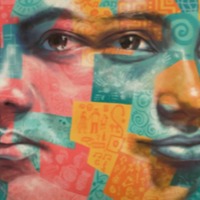
Living on the boat was like facing death. Work was irregular; sometimes we worked non-stop three days in a row. If we could have just one hour off we would be happy. Some people were so weak they fainted. The Cambodians helped each other by coining (a practice of rubbing coins along the skin which is believed to have health benefits). There was only paracetamol for any kind of illness, for dizziness or anything else! There were no days off. Sometimes they would let you do light work, but that was not that different from heavy work, you were still outside under the rain. If we didn’t work well, they cursed and swore at us, sometimes beat us.
Narrative provided by Hagar International, reported in Reintegration of Cambodian Trafficked Men, written by Kate Day









